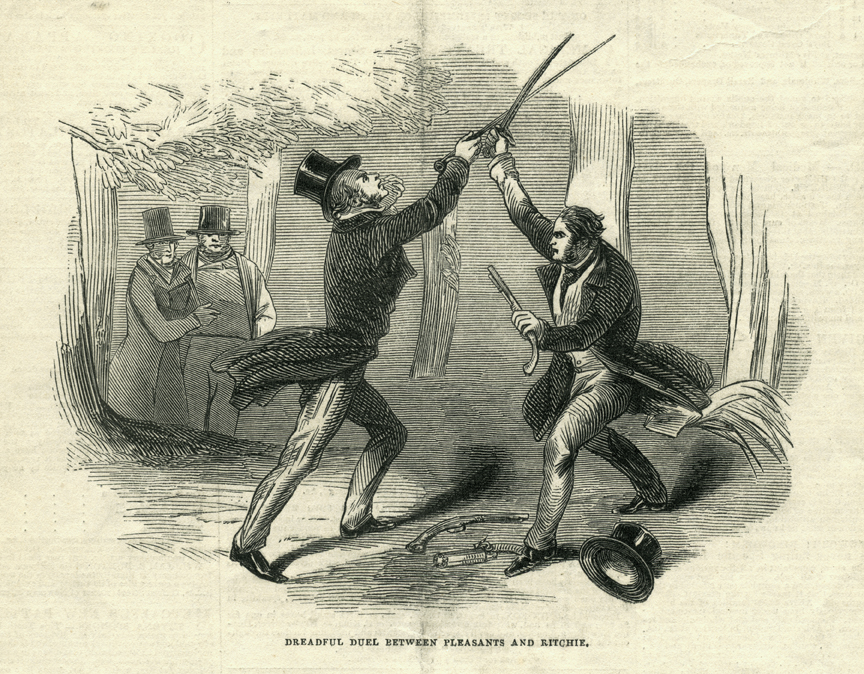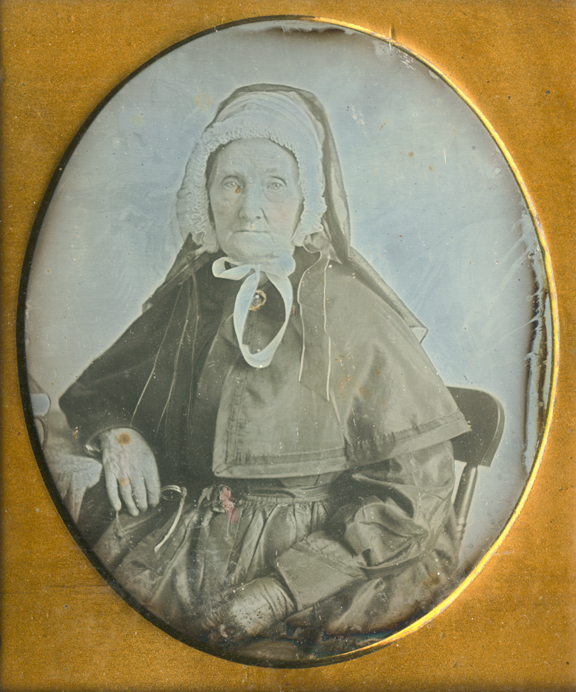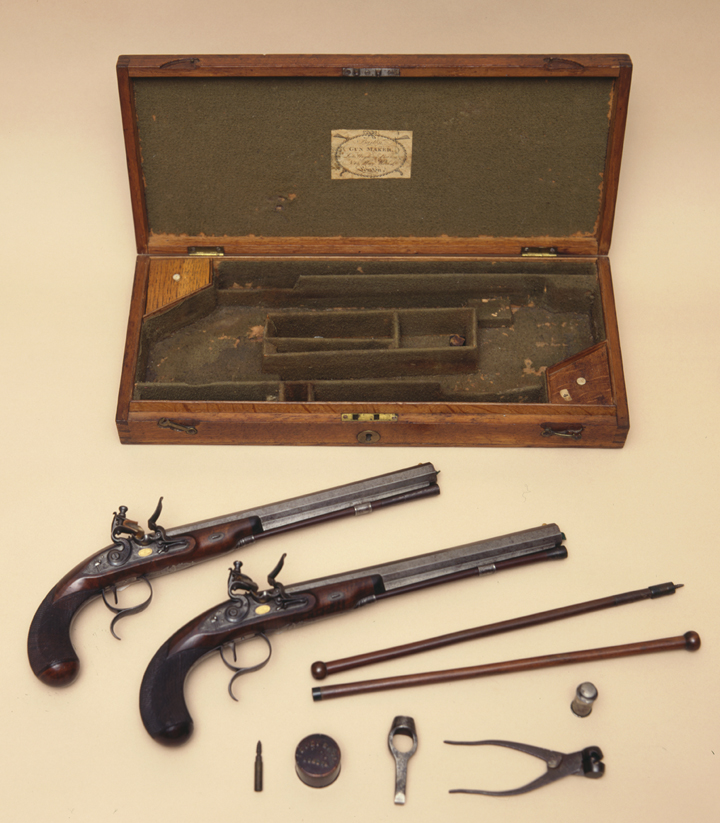In the United States and elsewhere, traditional and patriarchal conceptions of honor prescribed that men could respond to perceived slights by challenging the offender to a duel. Many Virginians earnestly engaged in such affairs, believing that their participation would mark them as “honorable” men. People in the vicinity took note of the outcomes of these rituals. A public contesting of honor in this format offered high stakes for one’s standing in his community. As Bertram Wyatt-Brown observed, in his book Southern Honor: Ethics and Behavior in the Old South,
“The duel, no less than hospitality and gaming, was inseparable from community evaluation of the individual, although dueling . . . was alleged to be a defense of personal honor.”
A number of these events evolved from insults lodged in print, frequently in the midst of political debates. The historian John Hope Franklin once observed that “no class of Southerner, perhaps, went to the field of honor more frequently than newspaper editors.” Meriwether Jones provided proof of Franklin’s assertion. An editor of the Richmond Examiner, and famous for his temper, Jones engaged in a number of duels—until, finally, an adversary killed him, in 1806.



